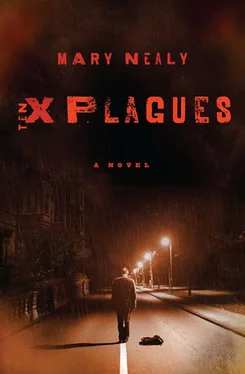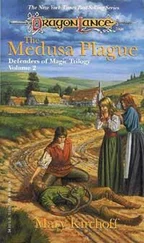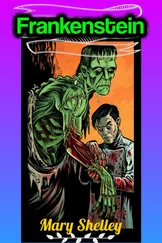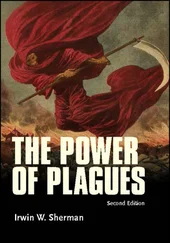O’Shea’s words echoed in his head. “Caldwell is someone you know. “
Keren had said, “It may be someone staying at the mission. “
Buddy came wandering in and grabbed a tray and served himself.
Paul hated that he was looking for suspects among the men he was supposed to help, but he kept looking. He’d studied the pictures of Caldwell. No one here resembled him; but Francis Caldwell had been a meticulously neat man, well dressed, obviously well-to-do. That polished man could very easily disappear under ragged clothes, a beard, and a layer of dirt.
Paul didn’t know if the thought came from God or himself, but he looked closer. He had been a cop. Describing people was, at one time, his vocation. He knew Francis had a rather prominent Roman nose and a weak chin, but he had enough money to have plastic surgery if he wanted to disguise himself more thoroughly.
Louie came in just then with McGwire and Casey-Ray. All five were here. He reached for his phone again just as Roger got up. Roger had turned into someone Paul couldn’t recognize. With the demon thrown out, he was a new man. Roger went to talk with Buddy and the two of them left.
Paul used the analytical side of himself, the cop side, to note that Roger was about the same height as Francis Caldwell. For that matter, Murray and Buddy were, too. An inch or so taller, but that could be explained with thick soles on their shoes. And Roger had definitely had a demon.
Paul suddenly wondered if Keren could have sensed the demon in Roger, even cast it out, but, like Legion, there had been more. Maybe Satan even manipulated Keren. Yes, she’d felt the devil leave Roger, and Paul had seen the change in him, but later Keren had again sensed the demon.
Keren had felt Pravus at the kill site today and Roger had been there. Paul clenched his jaw. Kill site! That was something a cop would think, not a pastor. “Forgive me, Lord.”
Paul tried to reclaim the joy in Roger’s transformation, but—as they had since he’d come back to the mission—peace, joy, and love all evaded him.
Paul could just be reacting to all the tragedy he’d lived through in the last few days. He wished Keren were there to help him. He pulled his cell phone out of his pocket to call her, then he shoved it back in. No! Not tonight! I’m not going to let the world come and drag me out of here tonight!
Instead, he listened while Murray sang of faithfulness and redemption. Buddy came back inside and offered to help Paul wash dishes. Paul was ashamed of himself for suspecting any of them.
Paul looked at this quiet man. Rosita had doubts about Buddy’s faith. And Paul didn’t have assurance that Buddy had truly given his heart over to the Lord. Buddy, a painfully thin man, with a perpetual baseball cap to cover his balding head and a full beard salted with gray, asked Paul what was happening with the police about Juanita’s and LaToya’s deaths.
Paul heard the sorrow in Buddy’s voice and was tempted to tell him that LaToya was still alive, but he caught himself. “We could spend some time in prayer later, if it would help you come to terms with the loss of our friends.”
As he expected, Buddy made sounds of interest, but, in the end, found an excuse not to pray.
When Buddy left the mission for the night, Paul phoned the hospital and got put through to Rosita. He told her he’d be over to sit with LaToya in a few minutes.
“Pastor P, just let me stay here, hokay? If you’re back at the mission for the night, then stay there and get some rest. I’m half asleep here already, and I’d rather just sack out on the waiting room couch than come all the way back there.”
“I don’t want you staying there alone. Is Manny with you?”
Rosita laughed. “You’re the man who says to live is Christ and to die is gain. How’s come you’re so afraid for my safety?”
Paul was unable to come up with a logical response. Finally he said, “I’m not going to be able to sleep tonight if I think you’re in danger. You don’t want to be responsible for me lying awake, do you?”
Rosita laughed out loud. “Good one, Pastor P. I’ll use that the next time I’m telling you not to go jogging in the neighborhood.” In an artificially nervous voice she said, “But Pastor P, I’m losing sleep with worry over you.”
“Rosie,” Paul growled in warning.
“I won’t budge from the hospital,” she promised. “I’m probably safer here, away from the mission.”
“You may be right.” Paul sighed. “Promise me you’ll keep the necklace on I gave you. And don’t head over here alone in the morning. We’ll manage breakfast. I really do want you to be safe, Rosie.”
“I promise.” Then she added, “Speaking of safe, it sounds like you survived the angry lady cop this morning. I knew you could talk your way out of it. Or did she put the bruises somewhere no one can see?”
“Good night, Rosita!”
He was listening to her infectious giggle when he hung up on her.
Paul spent awhile going from table to table pouring coffee. He spoke to everyone, called them by name, asked about their lives. He was particularly careful to speak to the women, reminding them of Wilma’s death and the danger they faced on the streets. He urged them all to sleep in the mission that night. They ignored his warnings.
O’Shea had said another woman was taken. Paul couldn’t pinpoint anyone who was missing—or rather, he noticed several regulars gone and guessed that most of them had just found food elsewhere and slept in their alleys. As he talked to these people who dwelled in so lowly a place in this world, he was more aware than ever of the way they looked and smelled and the terrible waste of their potential.
He had loved trying to reach them, and now he didn’t know why he bothered. His apathy frightened him. If he lost his zeal for the Lighthouse and couldn’t reconcile his Christianity with life as a cop, where did that leave him? Paul didn’t know who he was or what he was supposed to do with his life. He kept talking and serving and wondering how to restore his love for his calling.
After everyone had cleared out for the night, Paul went upstairs. He stood in front of his door, dreading the thought of re-entering his apartment for the first time since they’d found Melody Fredericks. The police had given him the green light to use the place again. After a long struggle, he forced himself to go in. He was met by a much-reduced swarm of gnats.
Moving quickly, he showered then found a pair of gym shorts and a T-shirt. He looked around his shabby little apartment. The Chicago summer had made the un-air-conditioned space stifling. The smell of death lingered. “How have I been able to stand living here for the last five years?”
Several gnats tickled his face. As he watched them lazily circle, he could feel the gnats he’d inhaled the morning he’d found Melody. He could taste the ones he’d swallowed.
He couldn’t bear the thought of sleeping here. “I could go to the shelter,” he said to the empty room, but he knew he couldn’t do it. Not tonight. He went to his bedroom, picked up the top mattress from his twin bed, and carried it—sheets, blankets, and all—out of his apartment and into his business office across the hall. He tossed it on the floor and dropped down on it.
The office was simply another converted apartment. A dim streetlight cast a shadowy light through the window. He lay there and stared sightlessly at the ceiling in the dark room. He couldn’t relax and he finally figured out why. He hadn’t locked the door. The office, with its old computer and its petty cash, was one of the few doors that was routinely locked.
“The one who is in you is greater than the one who is in the world.” “To live is Christ and to die is gain.” He waited for God’s peace to settle on him. “If God is for us, who can be against. “
Читать дальше












